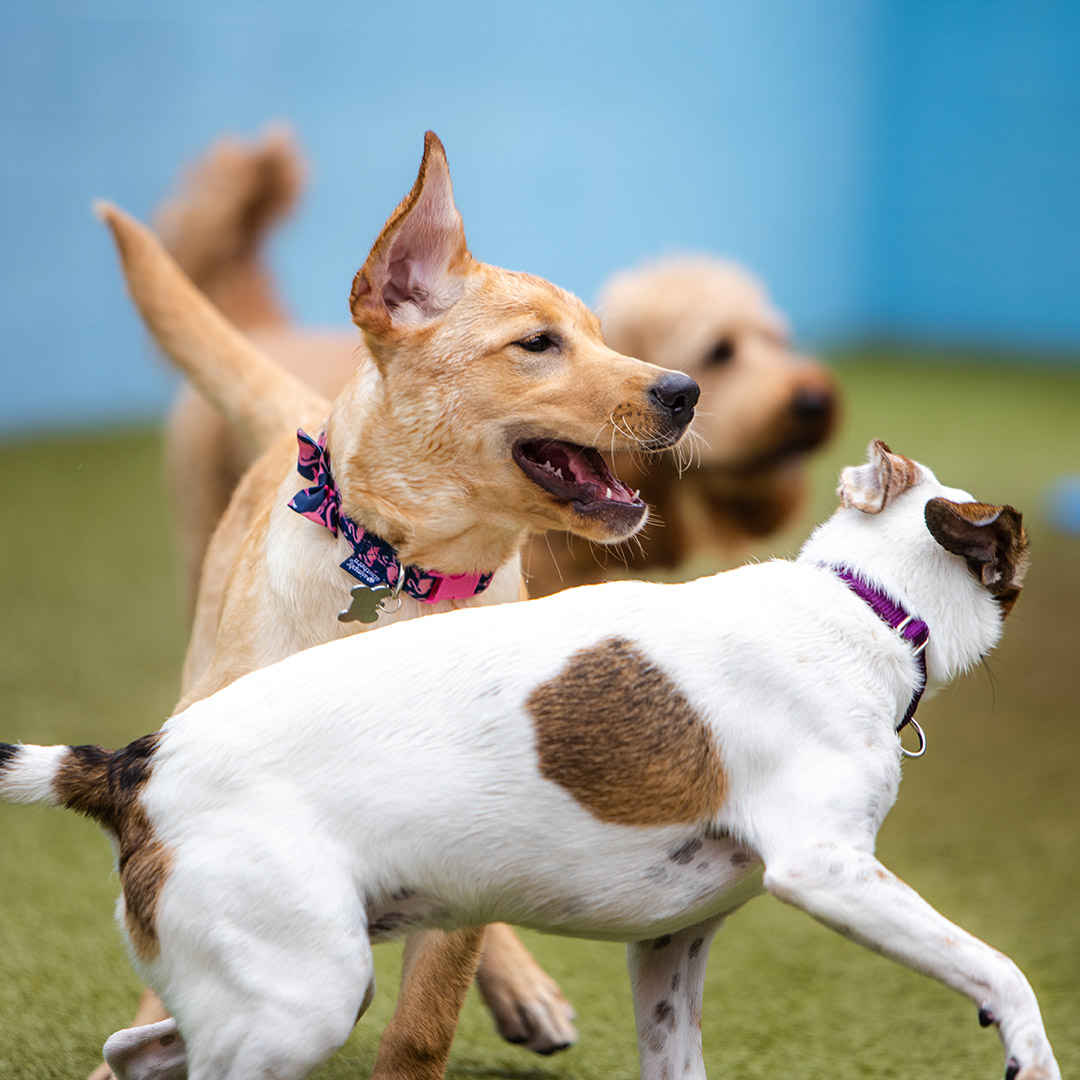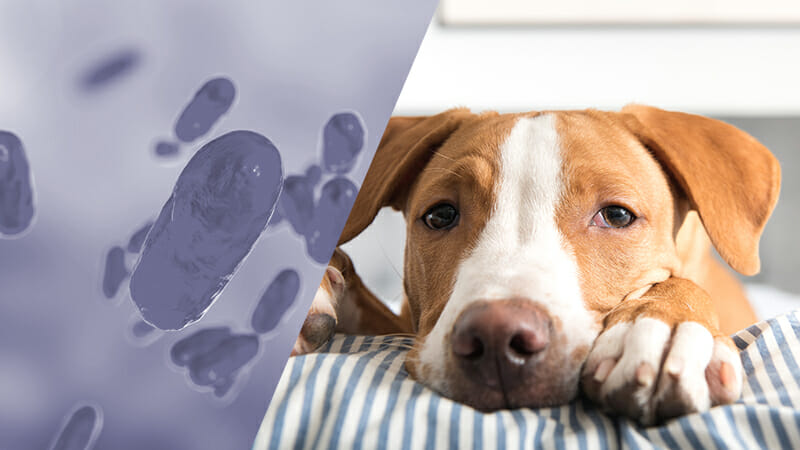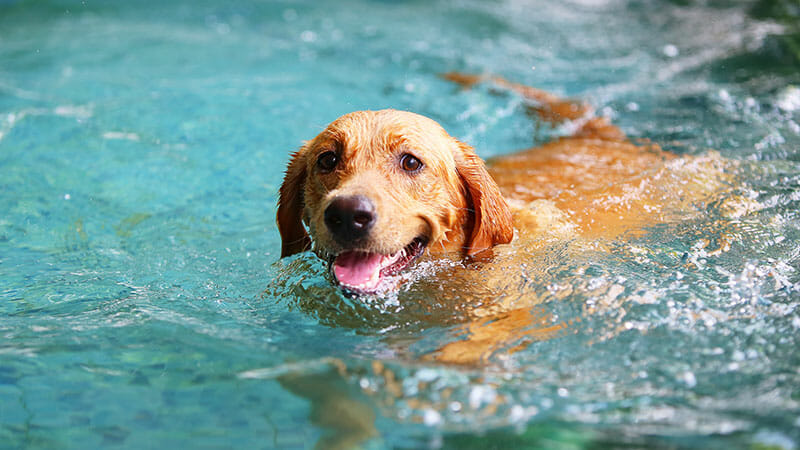Is Doggy Daycare the Perfect Solution for Socialization?
Doggy daycare provides an excellent environment for dogs to socialize, play, and interact with each other. So, the simple answer is yes, doggy daycare is an excellent outlet for socialization with other dogs. However, not all dogs may be well-suited for doggy daycare. Signing up an older, unsocialized dog daycare without knowing how they’ll react to unfamiliar dogs and humans isn’t a good idea. Some dogs just aren’t cut out for doggy daycare, and that’s okay.
Is Doggy Daycare Right for Your Dog?
If your dog has a track record of playing well with others, is up to date on all his vaccines, and is on a combo preventive for fleas, ticks, and intestinal parasites, he’s probably a great candidate for doggy daycare. Most daycares, including Lucky Dog, require a temperament test to make sure your pup adjusts well to their new routine and playmates. But, once he’s passed that testing period, your dog is free to spend his days socializing and playing with his new friends. Supervised, of course.
Puppies typically adjust better when they’re started off with daycare early—think puppy playgroups. Let them start learning the unwritten rules of doggy socialization in supervised situations so it is less overwhelming for still-learning puppies. Going slowly will allow you to keep an eye on how your pup reacts to other dogs and humans.
The Spectrum of Dog Sociability
Do you like everyone you meet? Just like people, dogs have different personalities and tolerate different things from dogs they don’t know. Where does your dog fall on the spectrum?
Dog Social
- Enjoys the company of almost every dog they meet.
- Most puppies start here.
- Most dogs will move further down the spectrum as they get older.
- This trait is rare in adult dogs.
Dog Tolerant
- Gets along with most other dogs.
- Has good communication skills.
- Requires normal supervision.
- A very common trait for adult dogs.
Dog Selective
- Has a small circle of approved dogs or types of dogs.
- Has a shorter fuse and dislikes certain play styles or types of dogs on sight.
- Might fit the “fun police” or “instigator” stereotype.
- Rare in puppies, but quite normal for mature dogs.
Dog Aggressive
- Has a limited circle of dog friends or no dog friends at all.
- Has poor social skills and is quick to react on the leash.
- Needs skilled support and direction from humans for successful dog interactions.
- Highly abnormal in puppies and uncommon in adult dogs with no history of bad encounters.
It’s important to note that although “dog selective” and “dog aggressive” might sound scary, it doesn’t mean you’ve got a bad dog. It just means they don’t particularly enjoy the company of other dogs and require some extra management. The most important thing you can do for them is not set them up for failure. This can include not introducing them to large groups of dogs.
The Benefits of Doggy Daycare
If your dog is a good candidate for doggy daycare, you can look forward to a variety of benefits. That includes exercise and mental stimulation for your dog that can prevent destructive behaviors at home. It’s also a great solution for providing your dog with supervision and companionship. There will always be humans around to make sure they’re safe and healthy, going for potty breaks, and eating when they’re supposed to. It also keeps your dog well-socialized with people and other dogs.
If you decide to sign your dog up for doggy daycare, don’t be afraid to ask questions! Choose a facility that’s safe and clean and staffed with friendly and helpful employees. You want to be able to trust the people you’re leaving your dog with, so don’t skimp on your due diligence.




